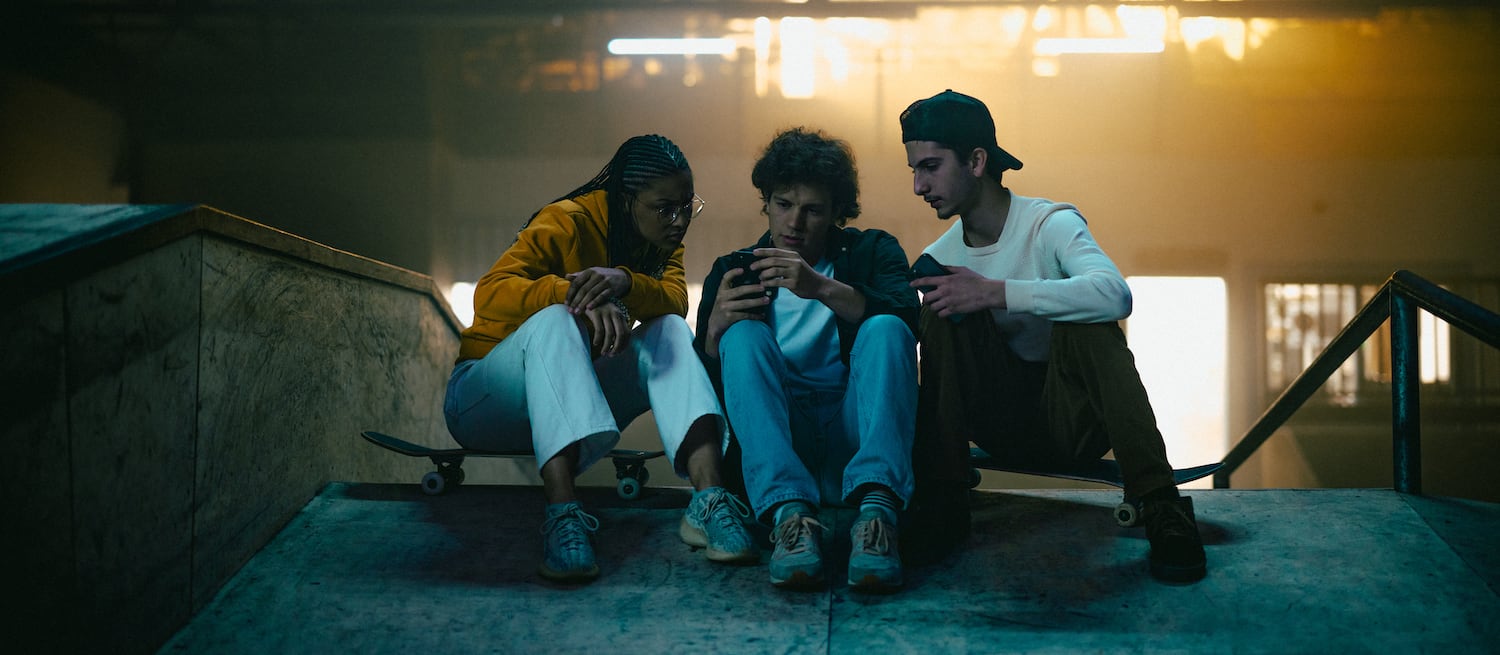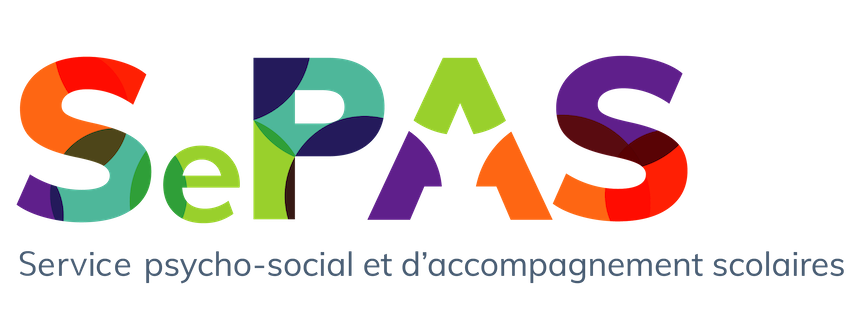FREQUENTLY ASKED QUESTIONS


Have you witnessed or been the victim of violence? Would you like to know how to behave in such a situation?
You'll find the answers here!
General
Violence is an offence.
Have you ever experienced that a friend, classmate or other teenager, whom you may not even know personally, has been violently attacked and beaten by other young people? Or have you already been a victim of such a violent act yourself?
Such assaults are a criminal offence and may be punishable with significant fines or, depending on the severity of the case, even imprisonment. In addition, the victim can claim legal damages in court. Depending on the case, there might also be other consequences for offenders, such as the exclusion from school or the confiscation of the mobile phone.
Moreover, in many cases, an audience gathers and films the violent act, then shares the filmed sequence with others or on social media. Obviously, this makes the victim's situation even worse, even after the assault. Therefore, the production and distribution of such videos are prohibited and significant fines may be imposed. This also applies for sharing videos that you have not recorded yourself, but received from others.
Instead of watching passively, you should get help without putting yourself in danger. Only if you get help, for example by contacting the Police, something can be done to rescue or help the victim. For more details on what you can do as a witness, click on the category “Witness”. Please bear in mind that by not helping, you may also commit an offence yourself (non-assistance of a person in danger).
You are a victim
How should you behave?
Of course, you should always try not to put yourself in danger. If a dangerous situation is on the verge of escalating and seems unavoidable, you should immediately call the police emergency hotline 113. If you cannot make the call yourself, you should alert those people around you and shout for help. Ideally use the name of the person whose attention you are trying to get, or use a description of a feature they might recognise: “You, in the blue shirt, call the police!“.
The police is there to help you if you are in danger. If you call the police emergency hotline 113, the police can arrive on site quickly.
You have been attacked – what should you do?
You are not alone! There are many people who would like to help you. But they cannot do so if they do not know what is going on. Therefore, it is important that you talk to a person you trust and share your experience with them. Whether it is your parents, friends, teachers, a member of the Service psycho-social et d'accompagnement scolaires (SePAS) in your school or another adult you trust is up to you.
In order to proceed against the perpetrator(s), it is important that you file a formal complaint and that the police is informed.
If there is a video of the attack, you should save it and show it to the police. It could be an important piece of evidence.
A formal complaint – how does it work?
The police wants to help you. The police officers know exactly what to do and want you and other young people to be safe in the future.
If you have been attacked, you can always call the police emergency hotline 113. At any time of the day, a member of the police will take your call and discuss with you what to do next.
You do not need to do this alone. If you prefer, you can also contact the police together with your parents, a friend, a teacher or another confidant.
All the information has to be recorded in an official hearing. Thus an appointment is scheduled at a police station, during which a police officer will ask you a few questions, such as:
- What exactly happened?
- When and where did it happen?
- How many offenders were there?
- What did they look like?
- Did you recognise the offender(s)? Was it someone you or a friend knows?
- Who else was there? Are there other witnesses?
Even if you do not have all the answers, do not hesitate to contact the police because the police cannot act and proceed against somebody if they don't know that something happened. Once the police has gathered all the necessary information, an investigation can take place.
You are a witness
How should you behave?
You witness somebody being attacked - what should you do? You should take immediate action, without getting yourself in danger. Call the police emergency hotline 113 : police officers can quickly arrive on site and help. If you cannot call the police yourself, you can ask others to do so.
In addition, you can try to memorise as many details about the offender(s) as possible, for example what they looked like or what they wore. This information can later be useful for the police.
Bear in mind that the victim can only be helped if you take action.
You know someone who has been attacked – what should you do?
An attack can have severe consequences for the victim. Apart from physical injuries, the person is also mentally unwell and probably feels frightened, humiliated and sad.
If a friend or someone tells you that they have been attacked, it is important that you listen to them and try to support them. You should recommend her or him to contact the police, either at one of the many local police stations (police.public.lu) or by calling the police emergency hotline 113. Both of you can also do this together or you can call the police yourself. Of course, you can also ask an adult, for example a parent, a teacher or another person you trust to guide and help you.
You might also not have witnessed an attack yourself, but only heard about it or seen a video, without even knowing the victim. In this case, check if you know or recognise someone in the video, whether it be the perpetrator or somebody else. If you do, save the video and report it to the police: this is important so that the necessary steps can be taken in order to identify the perpetrators and hold them accountable for what they did.
If you do not know anybody in the video, you should not forward it, but delete it right away. You should also inform the person who sent it that he or she is not allowed to do that. Producing and distributing such video clips is forbidden! (Category “Violence is a crime“). This also applies to sharing and forwarding videos that you have received from others.
A formal complaint – how does it work?
The police wants to help you. The police officers know exactly what to do and want you and other young people to be safe in the future.
If you have been attacked, you can always call the police emergency hotline 113. At any time of the day, a member of the police will take your call and discuss with you what to do next. You do not need to do this alone. If you prefer, you can also contact the police together with your parents, a friend, a teacher or another confidant.
All the information has to be recorded in an official hearing. Thus, an appointment is scheduled at a police station, during which a police officer will ask you a few questions, such as:
- What exactly happened?
- When and where did it happen?
- How many offenders were there?
- What did they look like?
- Did you recognise the offender(s)? Was it someone you or a friend knows?
- Who else was there? Are there other witnesses?
Even if you do not have all the answers, do not hesitate to contact the police because the police cannot act and proceed against somebody if they don’t know that something happened. Once the police has gathered all the necessary information, an investigation can take place.
You are a parent
How should you behave?
Violence between teenagers is not a new phenomenon, but a recurring one. There does not necessarily have to be a link or history between the offender(s) and the victim – in many cases, the victims are chosen randomly.
Quite often, the victim is not only injured physically, but the attack is also filmed by bystanders. Unfortunately, these videos are then shared with friends or on social media, which does not only have a damaging effect on the victim but also consequences for young people who are more often confronted with such images. It is however forbidden to produce and distribute such videos! (Category „Violence is a crime“). This also applies to sharing and forwarding videos received from others.
What can parents do?
Have daily talks with your child. It is important for them know that they can always come and talk to you about their experiences, feelings and worries. Respect and reassure your child if it tells you about difficult experiences and sad moments he or she may have experienced. This will make it easier for him or her to share and exchange information with you.
Furthermore, it is important that your child knows what to do if a dangerous situation occurs or if it witnesses an attack:
- Discuss how important it is to contact the police emergency hotline 113 immediately if there is an acute threat or danger to themselves or to others.
- Explain how important it is to help without putting themselves in danger. Informing the police or teachers is an important step and counts as help.
- Only if the police is informed, they can intervene. Explain to your child that the police is there to help. Thanks to your child's testimony, steps can be taken against the perpetrators and future violent acts can be prevented.
If your child tells you about a potentially dangerous situation, try to stay calm and reassure him or her. Show your kid that he or she is safe now, thank your child for the honesty and do not put any blame on them.
If your own child has been attacked, contact a local police station of your choice as soon as possible (police.public.lu) to file a formal complaint. Explain to your child that the police is there to help and describe what a conversation with the police will look like. More details can be found under the column 'witness' or via this link (police.public.lu). If the attack happened near to the school, also inform the school headmaster. If a video exists, save it in order to show it to the police as evidence.
If the incident does not concern your own child but someone else's, try to reach the victim's parents if you know them and recommend that they contact the police. In addition, inform the child’s teacher if the attack took place in school. Of course, you can also contact the police yourself.
In case of an acute threat or danger, immediately contact the police emergency hotline 113.
Contact Points:


Police Emergency Hotline - 113
If there is a threat or if you are in danger, immediately call the police emergency hotline 113.The police is available at all times. In case of an emergency, the police can quickly be with you to help.

Police Stations
For any incident that does not require an immediate police intervention, various police stations are available around the clock. If you want to file a formal complaint, it is best to make an appointment with a police station of your choice. A list of all the police stations is available here:

Public Prosecutor's Office, department for the protection of minors
At any given time, you can file a formal complaint with the competent public prosecutor's office (Luxembourg/Diekirch), which will then, if applicable, instruct the police to investigate. You can find all the necessary information here:

SePAS and SSE
Each school has a psycho-social-educational service (SePAS/SSE) that students and parents can approach with complete confidentiality. Psychologists, social workers, and educators offer support and assistance, provide information about rights and protective measures, and work transparently with the individuals involved to find solutions. In addition to individual work, SePAS and SSE participate in local and national prevention programs and contribute to the development of a nurturing school culture.

Office national de l'enfance
The National Office of Childhood (Office National de l'Enfance, ONE), along with its numerous regional offices, helps and provides support measures to children, adolescents, young adults, and their families, tailored to the individual situation of the beneficiaries. The ONE provides funding for various services, including extended psychotherapy and psychological consultations for witnesses, victims, and perpetrators of acts of violence. The families of the beneficiaries can also benefit from numerous offerings provided by the ONE.
Kanner- a Jugendtelefon
Kanner- a Jugendtelefon is a counselling service for children and young people. Counselling takes place via telephone, mail or chat. Children and young people can contact the Kanner- a Jugendtelefon anonymously, confidentially and free of charge with their questions and concerns. Parents can also make use of telephone counselling, anonymous and confidential.

BEE SECURE
BEE SECURE is an initiative of the government of the Grand Duchy of Luxembourg, implemented by the Service national de la jeunesse (SNJ) and the KJT. Its purpose is to promote the safest, most responsible, and positive use of information technologies in the general public. BEE SECURE publishes information brochures and practical guides for children, teenagers, and their environment. BEE SECURE provides this information to the general public through its websites, social networks, and nationwide press. Additionally, BEE SECURE offers the BEE SECURE Stopline to the general public as a means to demonstrate civic courage and report illegal content online, whether it be texts, images, or videos on social networks, forums, blogs, or websites.